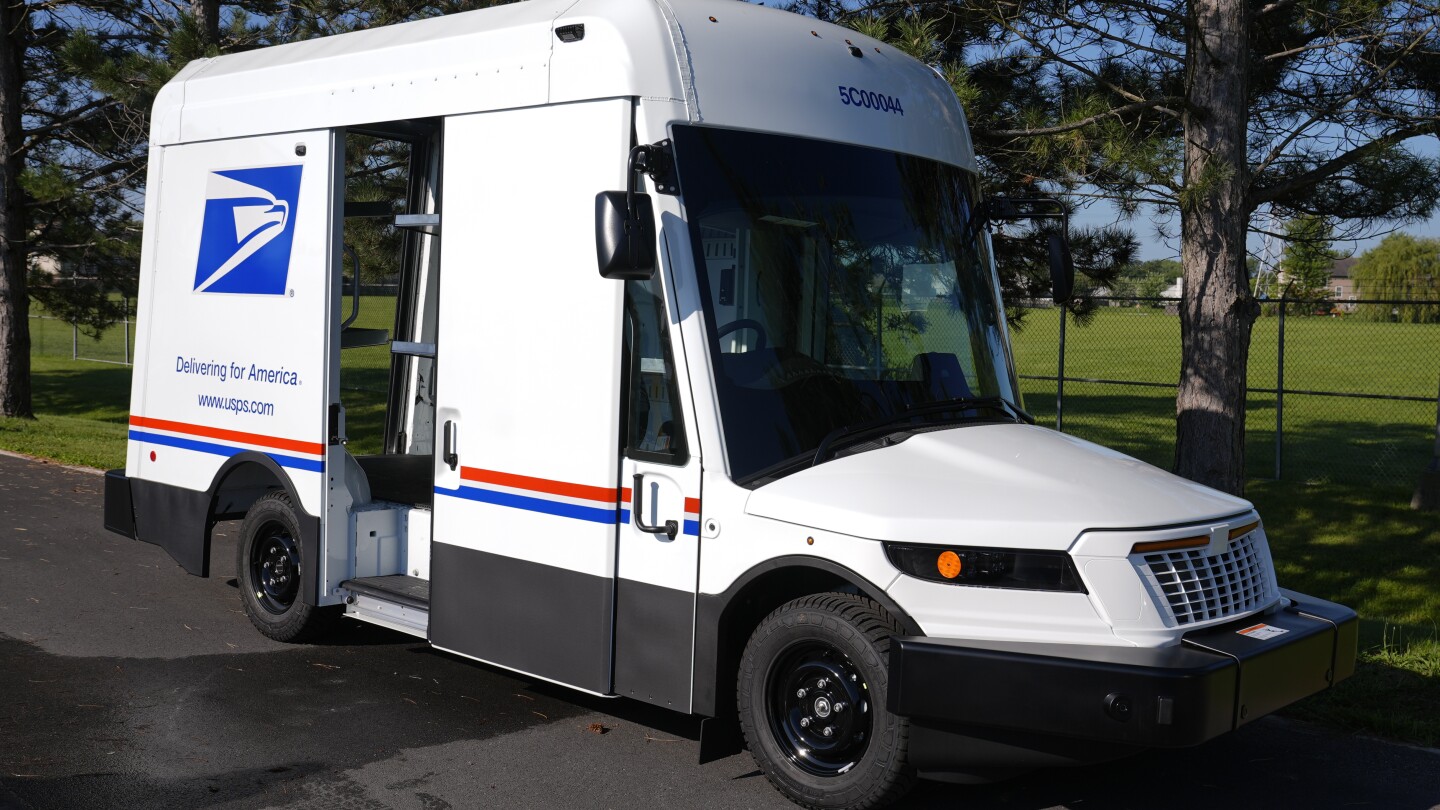The Postal Service’s new delivery vehicles aren’t going to win a beauty contest. They’re tall and ungainly. The windshields are vast. Their hoods resemble a duck bill. Their bumpers are enormous.
“You can tell that (the designers) didn’t have appearance in mind,” postal worker Avis Stonum said.
Odd appearance aside, the first handful of Next Generation Delivery Vehicles that rolled onto postal routes in August in Athens are getting rave reviews from letter carriers accustomed to cantankerous older vehicles that lack modern safety features and are prone to breaking down — and even catching fire.
Within a few years of the initial rollout, the fleet will have expanded to 60,000, most of them electric models, serving as the Postal Service’s primary delivery truck from Maine to Hawaii.
Once fully deployed, they’ll represent one of the most visible signs of the agency’s 10-year, $40 billion transformation led by Postmaster General Louis DeJoy, who’s also renovating aging facilities, overhauling the processing and transportation network, and instituting other changes.



The German postal service designed it’s own delivery truck in 2014 because they were no viable electric delivery trucks available. With a range of just 100km and 48kW because that was enough for most routes.